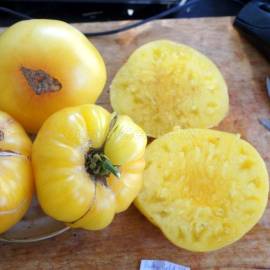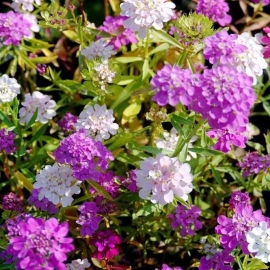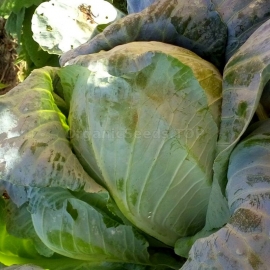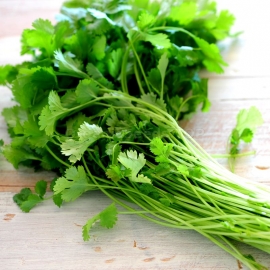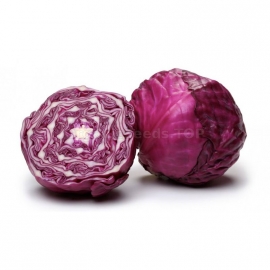
«Ruby Ball» - Organic Cabbage Seeds
1.14 €
Cabbage 'Ruby Ball' is a uniform, early maturing, vigorous red cabbage producing deep red, solid and compact heads for late summer and autumn cropping.
-
Organic Cabbage «Ruby Ball»
Cabbage 'Ruby Ball' is a uniform, early maturing, vigorous red cabbage producing deep red, solid and compact heads for late summer and autumn cropping.How to Grow
Sow seeds indoors 6 to 8 weeks before average last spring frost. Keep soil warm (about 75 F) until germination. Then keep plants around 60 F. Provide direct sun so plants don't get leggy. When plants are 4 to 6 weeks old, transplants into garden 12 to 24" apart, in rows 18 to 34" apart. Use closer spacing for smaller, early varieties, wider spacing for larger, late-season varieties. Can be direct seeded as soon as you can work the soil. Will germinate at soil temps as low as 40 F. Plant ¼ to ½ inch deep, about 3 inches apart.
Thin to final spacing. Direct seed in summer for fall crop, or start transplants in late May and transplant in late June or early July. Plants have shallow root systems. Avoid even shallow cultivation. Mulch to protect roots, reduce weed competition and conserve moisture. Use floating row cover to protect crop from early pests.
When heads are mature, they are prone to splitting in response to any stress or a rain following a dry period. Avoid splitting by choosing varieties that resist splitting, spacing plants close together (8 to 12 inches for early varieties, 12 to 16 inches for later varieties), using shovel to sever roots on one side about 6 inches from the plant, or twisting plants after heads have firmed to break some of the roots.
To help reduce disease, do not plant cabbage or other cole crops in the same location more than once every three or four years. When cabbages are 4 to 5 inches tall, thin or transplant to stand 18 to 24 inches apart. Apply a thick layer of mulch to retain moisture. Water plants during the summer if rainfall is less than 1 inch per week. Contact your local county extension office for controls of common cabbage pests such as aphids, root maggots, cabbage-worms, and cabbage loopers.
Products Viewed Before
Product code: 5316
1.14 €
As aesthetically appealing as it is delicious, ruby boasts prolific beautiful huge red-streaked yellow fruits with marbled interior flesh, meaty with superb mild sweet flavor, smooth melting texture and not a bit of acidity.
Product code: 6343
1.14 €
A delightful miniature strain with compact plants bearing a wealth of blooms in a cheerful range of bright colours. A charming edging plant. 8ins (20cm) This is the hardy annual, Candytuft, which doubtless because of the extreme ease of its cultivation.
Product code: 5421
1.14 €
One of the best late varieties of domestic selection. Transportable, frost-resistant. Well preserved. Vegetation period is 154-165 days. The head is round-flat, weighing 2-4 kg, dense, white. The taste is excellent.
Product code: 5915
1.14 €
An annual plant. The vegetation period from germination to the economic shelf life is 30-40 days. Bush is branchy, of a height of 70-90 cm. For seed production crops its carried out in the spring, to obtain fresh green seeds can be sown multiple times.

